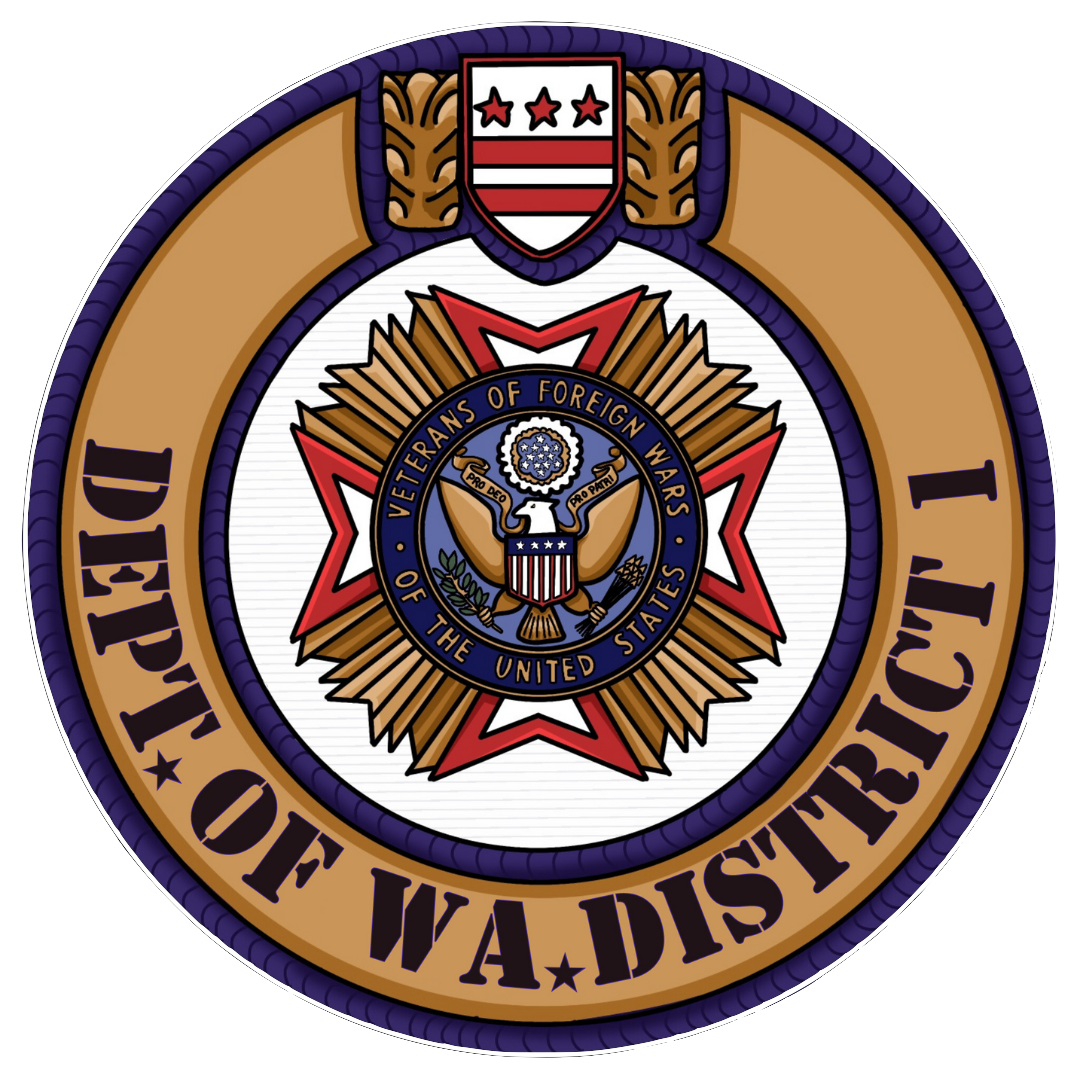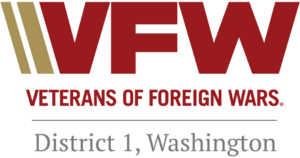VFW DISTRICT 1
RESOURCES
24/7, confidential crisis support for Veterans and their loved ones.
You don’t have to be enrolled in VA benefits or health care to connect.
Dial 988 press 1
- Veterans Downpayment Assistance Program
- Washington Association of Realtors
- Rebuilding Together
- Property Tax
- Federal VA Home Loans
- Federal VA Specially Adapted Housing Grant
- Federal VA Home Improvement and Structural Alterations Grant (HISA)
- Sales Tax Exemption / Adapted Housing for Disabled Veterans
- Tacoma/Pierce County Habitat for Humanity
- Washington State Foreclosure Fairness Act Effective July 22, 2011. Washington is Third Non-Judicial Foreclosure State to offer Mediation
The Washington State Department of Veterans Affairs maintains a one-of-a-kind, state-funded outreach/counseling program designed to provide confidential counseling services to Washington State veterans and family members.
- WDVA PTSD Program * PTSD Program Counselors in Washington –
- Federal VA Vet Centers in Washington
- Readjustment Counseling
- Bereavement Counseling
- Military Sexual Trauma Counseling
- Defense and Veterans Brain Injury Center (DVBIC)
- Veterans Crisis Line, Suicide Prevention Resources
- SAMHSA – Substance Abuse and Mental Health Services Administration
- ParkRx – Washington State Parks has partnered with Park Rx America to help make Washingtonians healthy. Working directly with healthcare providers and their respective organizations, Park Rx makes it easy for healthcare providers to prescribe parks and other natural areas to their patients in the clinical practice setting.
- Puget Sound Health Care System Seattle & American Lake
- Seattle & American Lake Deployment Health Clinic
- Portland VAMC Mental Health
- Spokane VAMC
- VA Treatment Programs for Substance Use Problems (Locations in WA State)
- Veterans Alcohol and Drug Dependence Rehabilitation Program (VHA)
- Veterans Training Support Center – VTSC (Training Opportunities)
- Federal VA Community Provider Toolkit
- Coaching into Care
- VA Puget Sound Services
- Women’s Health Clinic
- Women’s Military Sexual Trauma Program
- Summary of VA Services
- National Center for PTSD
- Giving Voice a Hope: Assistance for Female Veterans
For Family Members and Military Spouses
- The Federal Veterans Benefits Administration offers a variety of benefits and services to spouses, children, and parents of Servicemembers and Veterans who are deceased or totally and permanently disabled by a service-connected disability
- VA Caregiver Program
- County Veterans Assistance Programs provide assistance to eligible families of deceased veterans who have resided in Washington state for at least one year may be available. Contact your County Veterans Assistance Program for more information.
Preference for public employment is given to surviving spouses of honorably discharged wartime veterans, and spouses of honorably discharged veterans with a permanent and total service-connected disability.
Dependency and Indemnity Compensation (DIC)
When a veteran dies of service-related causes – or was continuously rated totally disabled for at least 10 years preceding death, or five years from date of discharge – benefits may be paid to a surviving spouse, dependent or low-income parents.
Dependents must be:
- Less than 18 years of age,
- Not yet 23 years of age if attending a VA-approved school; or
- Disabled before age 18.
Based on the veteran’s length and degree of service-related disability, or other qualifying factors for service members, educational benefits may be available to dependents and spouses who have not remarried.
Dependents must be between the ages of 18 and 26 to receive education benefits, though extensions may be granted.
(A Summary Washington State’s Education Benefits for Dependents of 100% Disabled Veterans or those who died as a result of military service.)
Dependents of Vietnam veterans who suffer from Spina Bifida are eligible for vocational training, health care and a monthly allowance based on degree of disability.
Home Loan Guarantees
Spouses who have not remarried may qualify for a VA loan guarantee if they were married to:
- A veteran;
- A service member who died of service-related disabilities;
- A service member who died while on active duty; or
- A service member who has been listed as MIA or a POW for more than 90 days.
Surviving spouses who have not remarried – as well as unmarried dependents of deceased veterans – may receive pension benefits if:
- The veteran served more than 90 days in active duty military service;
- Served at least one day during a period of wartime; and
- Received any discharge other than dishonorable.
Benefits include the gravesite, headstone or marker, opening and closing of the grave and perpetual care.
The federal VA may pay reimbursement of a portion of the veteran’s funeral and burial expenses, as well as provide headstones and markers for the unmarked graves of veterans anywhere. Eligible spouses and dependents may also qualify for headstones and markers in national, state veteran or military post cemeteries.
Qualifying veterans, service members, spouses and dependents may be eligible for burial in a VA National Cemetery.
The Federal VA provides headstones and markers for the unmarked graves of veterans anywhere, and for eligible spouses and children of veterans interred in national, state veteran or military post cemeteries.
Parents, Spouses, Children, and Siblings may qualify for a Gold Star License Plate. Widows(ers) eligible for DIC may receive one plate and vehicle registration at no cost.
County assistance for families of deceased veterans may be available based on income and other qualifications.
The Washington State Department of Veterans Affairs (WDVA) assists veterans, their family members and survivors in connecting to the benefits you earned through your military service.
Veterans Service Offices and a statewide referral service assist veterans and family members in accessing benefits such as:
- VA Disability Compensation
- VA Pension or Widows Pension
- Aid & Attendance
- Medical Care
- Higher Education and Vocational Rehabilitation
- Other Federal, State or County Benefits
Documents that may be needed when applying for benefits include:
- DD214 or other separation papers
- Marriage certificate(s) and divorce decree(s)
- Birth records for each dependent child
- Death Certificates
- Service medical records


